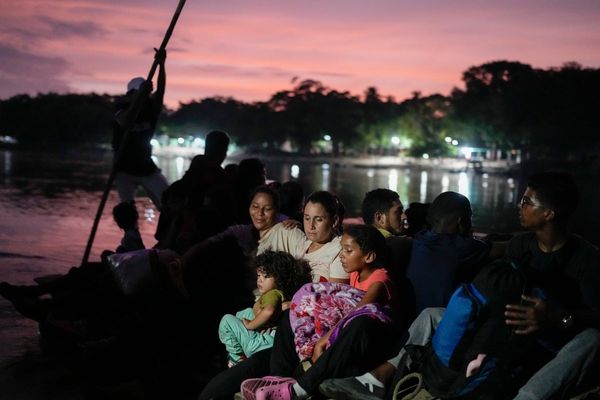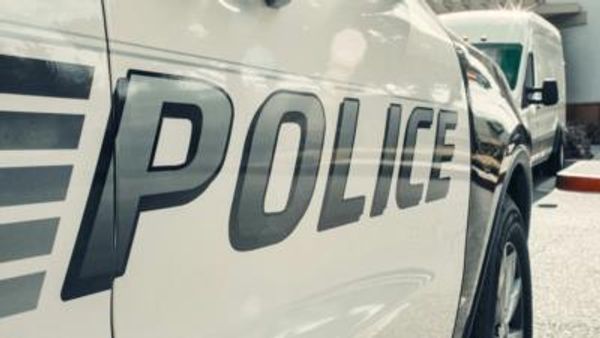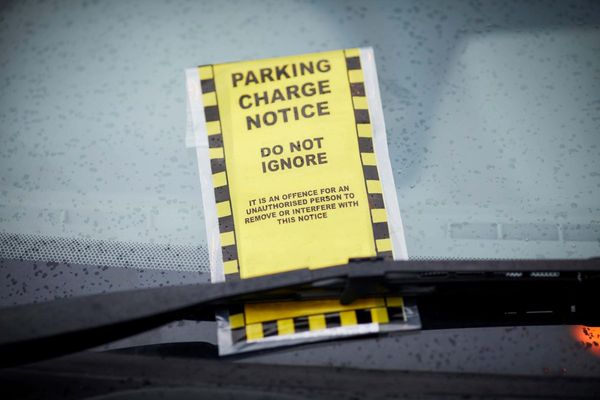WASHINGTON _ Momentum is growing in Washington to approve an increase in the fee airline passengers pay to help improve the nation's airports _ with an unusual mix of Democratic House leaders and historically anti-tax conservatives helping push the effort.
The passenger facility charge is currently a maximum of $4.50 per person per flight segment, and hasn't gone up in 19 years. It's limited to two flight segments on a one-way trip, which means a consumer pays no more than $9 per trip.
It's up to eligible airports how much to charge _ the fee is folded into the price of a ticket _ and virtually all airports levy some amount.
The increase could wind up in a big legislative package aimed at improving and funding infrastructure. President Donald Trump is scheduled to meet with Democratic leaders, House Speaker Nancy Pelosi of California and Senate Minority Leader Chuck Schumer of New York, on Tuesday morning to discuss infrastructure and related issues.
For years, Republicans in charge of House transportation legislation resisted higher fees while the Senate has been sympathetic. But political times have changed.
Transportation Secretary Elaine Chao recently said she would not rule out a higher fee.
She was asked at a Senate hearing on transportation spending last month whether she was willing to "embrace" the idea of "lifting the cap on airport facility charges to help pay for airport improvements."
"Well, I think the good news is, you know, nothing is off the table," Chao said.
Rep. Peter DeFazio, the Oregon Democrat who since January has chaired the House Transportation and Infrastructure Committee, called permitting a higher airline passenger fee "a priority for me."
"Airports are in need of rehabilitating runways and renovating aging and overcrowded terminals. They also are in need of adding more gates, which will increase airline competition and lower ticket prices, as well as help passengers avoid sitting on the tarmac when they land," DeFazio told McClatchy.
Experts at conservative organizations such as FreedomWorks and The Heritage Foundation, whose officials have long pushed for lower taxes, are behind the effort. They view the increase as a user fee and boost to free market forces, rather than a tax.
All this creates a climate that's "absolutely better" for advocates of allowing the fee to rise, said Annie Russo, senior vice president of government and political affairs at the Airports Council International, which has pushed for changes in the fee.
Among the ideas being discussed in Washington transportation circles would be to allow airports to charge passengers as much as $8.50 per flight segment, and then be able to increase the amount each year to match inflation. Another idea is to remove the cap altogether.
The opposition to increased fees remains formidable _ the nation's airlines, whose clout has helped keep the charge unchanged for years.
A boom in airport construction is underway, said Sharon Pinkerton, senior vice president for policy at Airlines for America, the airline industry trade group. She cited data showing airport revenues are soaring, and noted airlines and passengers already pay billions of dollars annually through a variety of fees and taxes.
The passenger facility charge is expected to provide about $3.6 billion this year, according to federal data. Other airport revenue comes from a variety of sources, including other taxes, federal grants, and non-airline operations such as parking, hotels and concessions.
Airport industry officials counter the notion that the industry is flush with funds by pointing to a study showing airports will need not only $128 billion over the next five years for infrastructure projects, but have $91.5 billion in debt burden for past work.
Some Republicans and conservative groups remain wary of any increase.
National Taxpayers Union President Pete Sepp warned that the current fee already can cost a family of four $72 roundtrip, a sum that he said could easily double should the limit be lifted.
Sepp called the passenger facility charge (PFC) "a government-imposed burden on traveling taxpayers." He added, "Congress has a responsibility to keep that burden reasonable. Taxpayer groups should be cautious of efforts to increase the cap on PFCs."
He said that "If some members of Congress seem willing to take the drastic step of lifting the PFC cap, then they should also be willing to consider comprehensive reforms that would work far better."
Rep. Sam Graves of Missouri, the transportation committee's top Republican, would not rule out uncapping the fee, saying "in terms of an infrastructure package, all funding options are on the table."
But, Graves added, "I am skeptical of any proposal that adds to the traveling public's burden, fails to fully consider the views of local communities and passengers, and lacks a full range of financing options, including private capital."
Helping push the fee change are conservatives who argue it's not a tax, but a useful economic development tool now hamstrung by federal intrusion.
"I hate taxes. But this is a true user fee," said Jason Pye, vice president for legislative affairs at FreedomWorks, a conservative advocacy group.
While Congress sets the cap on the fee, and the money is used to fund projects approved by the Federal Aviation Administration, the funds go to local airports all over the country for improvements to runways, terminals, gates and other needs.
Washington should therefore not be getting involved in how much airports can charge passengers for improvements, said David Ditch, research associate at the conservative Heritage Foundation.
'The federal government is trying to control how airports collect money," he said. The market will determine how much of a fee is too much _ "if it's $500 per person, people would stop using the airport."
Using the fee for a specific purpose makes it different from ordinary taxes, which tend to go into a general fund for a variety of uses.
"This isn't about raising taxes," said Marc Scribner, a senior fellow at the libertarian Competitive Enterprise Institute. It's about letting the free market do its job, he said.
Advocates maintain there is little consumer resistance to a higher fee and little danger the money will be misused.
"We need approval from the (federal) department of transportation and we have to sell the proposal in the community. If an airport aims too high or tries to spend frivolously, they'll hear about it," said Joel Bacon, executive vice president for government and political affairs at the American Association of Airport Executives.
Airports get help not only from the fee, but also from a federal grant program that gets money from a variety of sources, including ticket taxes and other aviation taxes and fees. Those funds are used for grants to airports, usually for runways and other outside projects.
Airlines for America contends that the grants and the passenger fee, as well as other revenue sources, combine to give airports plenty of cash. Currently, the group said, federal taxes and fees account for about $64 of the cost of a $300 domestic one-stop round-trip ticket.
"Make no mistake," the group said in a statement, "a PFC increase would be a system-wide and permanent tax increase with real repercussions."
Airport groups vigorously dispute such claims, and question why a $3 or $4 increase in the passenger fee would be any more onerous than, say, a fee for baggage or to choose a seat.
Airlines for America's Pinkerton noted there's a big difference between those charges and the passenger fee. "If you're going to travel you must pay the passenger fee. You don't have to pay the baggage fees. The passenger fee is not driven by need," she said.
Now that Democrats control the House, Congress is tilting focus toward airport infrastructure as lawmakers see facilities badly in need of upgrades and little political risk in increasing a fee by a few dollars.
"You cannot have a big-league economy with little-league infrastructure," said Rep. Rick Larsen, a Washington Democrat who chairs the House aviation subcommittee. "You don't need to be an economist to see that infrastructure investments in the nation's airports fall far short of meeting local needs."






